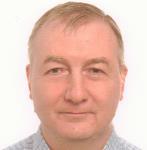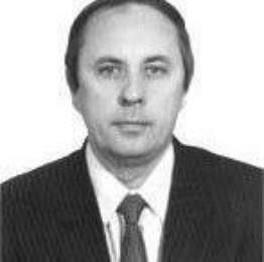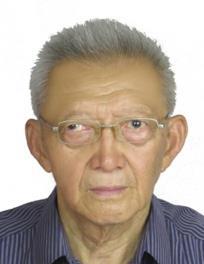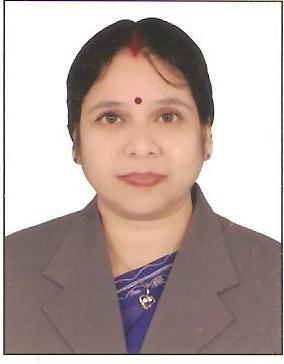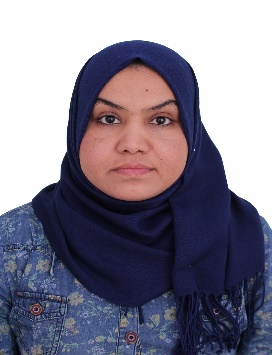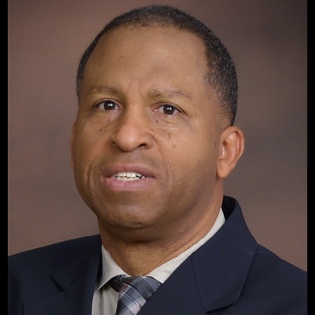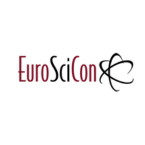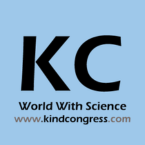About Conference
Conference Series LLC Ltd invites all the participants from all over the world to attend “11th International Conference on Quantum Physics and Mechan” during August 27-28, 2026 Zurich, Switzerland
Theme: Endorse and Engross the Impacts of Quantum Physics and Mechanics.
Details of Quantum Mechanics 2026:
Quantum Physics and Mechanics is an annual conference that brings together researchers working on Physics and mathematical foundations of computing, quantum physics, quantum and related areas, with a focus on structural perspectives and the use of logical tools, ordered algebraic and category-theoretic structures, formal languages, semantically methods, and other computer science techniques applied to the study of physical behavior in general. Work that applies structures and methods inspired by quantum theory to other fields (including computer science) is also welcome.
Visa Application Process
To attend the conference, please apply for a Business Visa through your nearest French Embassy, Consulate, Visa Information Center, or an authorized Travel Agency. It is essential to follow the proper procedures as outlined by the local authorities.
Important Note:
Visa applications for travel to Paris, France must be processed exclusively by the relevant embassy or consular office upon submission of all required documentation. Failure to provide the necessary documents or adhere to the specified guidelines may result in visa denial or cancellation by the authorities.
Minimum Required Documents for Visa Application:
-
Official Letter of Invitation from the conference organizers
-
Letter of Acceptance or Abstract Approval (for speakers or presenters)
-
Proof of Registration Fee Payment (receipt or confirmation email)
-
Hotel Booking Confirmation Letter issued on the official conference letterhead
We strongly recommend contacting your local embassy for any additional country-specific requirements or updates. If you need assistance obtaining the official documents from our side, please don’t hesitate to contact us.
Note: For the Letter of Invitation and Accommodation Confirmation, payment of registration and accommodation fees is a prerequisite. Please contact us for more information
sessions and Tracks
Track 1: Quantum Mechanics
Quantum mechanics is the foundational theory of physics that explains the behavior of matter and light at the atomic and subatomic scale. Unlike classical mechanics, it accounts for phenomena like wave-particle duality and the probabilistic nature of particles. This theory underpins technologies such as lasers, semiconductors, MRI, and quantum computing. It remains vital for understanding and predicting microscopic interactions with remarkable precision.
Track 2: Quantum Physics
Also known as quantum theory, quantum physics extends our understanding of nature at the smallest scales. It encompasses the behavior of subatomic particles such as electrons, photons, and quarks, and describes interactions governed by quantum field theory. Applications range from particle accelerators to quantum sensors and advanced computational models.
Track 3: Interpretations of Quantum Mechanics
Various interpretations aim to make sense of the counterintuitive results of quantum mechanics. While all produce the same experimental outcomes, they differ in philosophical perspective—such as the Copenhagen interpretation, many-worlds theory, and pilot-wave theory. This track explores how these interpretations affect our understanding of reality and quantum information.
Track 4: Quantum Control and Measurement
This field studies how quantum systems can be manipulated and observed with high precision. Quantum control techniques enable the development of quantum sensors, quantum simulators, and error-corrected quantum computers. Measurement plays a critical role in collapsing quantum states and is central to the development of quantum metrology and feedback systems.
Track 5: Nuclear Fission and Fusion
These processes involve the manipulation of atomic nuclei to release energy. Fission splits heavy nuclei, while fusion combines light nuclei—both producing vast energy output. Research in this area supports applications from nuclear power to weapons development and next-generation clean energy solutions like controlled fusion reactors.
Track 6: Quantum Technology
Quantum technologies harness unique principles like entanglement, superposition, and tunneling to build revolutionary applications. These include quantum cryptography for secure communications, quantum sensors for ultra-precise measurements, and quantum computers that can outperform classical systems in specific tasks.
Track 7: Quantum Thermodynamics
This emerging field merges quantum mechanics with thermodynamic principles, especially in non-equilibrium and small-system limits. It addresses how energy flows and entropy behaves in quantum systems, laying the foundation for designing quantum engines and understanding the fundamental limits of quantum computing.
Track 8: Algorithms in Quantum Computation
Quantum algorithms exploit quantum parallelism and entanglement to solve problems more efficiently than classical methods. This track examines foundational algorithms like Shor’s for factoring and Grover’s for search, as well as emerging approaches in quantum machine learning and optimization.
Track 9: Quantum Chemistry
Quantum chemistry applies quantum mechanics to explain chemical phenomena at the atomic level. It enables accurate modeling of molecular structures, reaction pathways, and energy states—crucial for drug discovery, material science, and catalysis. Advances here are closely tied to the growth of quantum computational platforms.
Track 10: Quantum Field Theory (QFT)
QFT combines quantum mechanics and special relativity to describe how particles interact via fields. It forms the basis of the Standard Model of particle physics and underpins theories like quantum electrodynamics (QED) and quantum chromodynamics (QCD). QFT remains essential to modern physics research.
Track 11: Quantum Chromodynamics (QCD)
QCD is the theory of the strong nuclear force, explaining how quarks and gluons interact within protons, neutrons, and other hadrons. It explores phenomena like quark confinement and the creation of exotic particles in high-energy collisions. This field is central to understanding nuclear matter and the early universe.
Track 12: Nuclear Engineering
This branch focuses on the design and application of nuclear processes and technologies. It includes the development of nuclear reactors, radiation therapies, nuclear propulsion systems, and safe waste management practices. It also plays a role in national security and energy sustainability.
Track 13: Quantum Transport
Quantum transport studies how electrons, atoms, or photons move through materials and devices at the quantum scale. It has implications for nanoelectronics, superconductors, and photonics. Understanding quantum coherence and interference is key to designing efficient nanoscale systems and quantum networks.
Track 14: Quantum Optics
Quantum optics investigates the quantum behavior of light and its interactions with matter. It enables innovations like quantum communication, quantum imaging, and laser-based technologies. Quantum dots, entangled photons, and squeezed light are among the tools driving research in this domain.
Track 15: Nuclear Physics
Nuclear physics explores the structure and behavior of atomic nuclei. It includes studies of nuclear reactions, radioactivity, and the creation of heavy elements. The field has practical applications in energy generation, medical imaging, and nuclear forensics.
Track 16: Nuclear Quantum Physics
This interdisciplinary track blends quantum mechanics and nuclear physics to study the quantum behavior of complex nuclei and nuclear reactions. It contributes to our understanding of matter under extreme conditions, such as those in stars or neutron collisions.
Track 17: Quantum Information & Quantum Computing
This field focuses on encoding, processing, and transmitting information using quantum systems. Quantum computing harnesses qubits for parallel computation, offering transformative potential across cryptography, logistics, and AI. Quantum information theory provides the framework for secure communication and teleportation protocols.
Track 18: Quantum Cryptography
Quantum cryptography utilizes the principles of quantum mechanics to enable unbreakable encryption methods. Technologies like quantum key distribution (QKD) ensure secure communication by detecting any eavesdropping. As quantum computers advance, quantum-safe cryptographic methods become increasingly critical.
Track 19: Quantum Nanoscience
Quantum nanoscience applies quantum principles to design and manipulate materials and devices at the nanoscale. It explores phenomena like quantization, entanglement, and coherence in nanostructures. Applications span from quantum dots and sensors to scalable quantum processors.
Track 20: Quantum Science – Foundations and Frontiers
Quantum science explores the foundational principles and broad implications of quantum theory. This track covers theoretical advancements, experimental breakthroughs, and interdisciplinary applications, including fundamental questions about measurement, causality, and the nature of reality.
Why to Attend
Welcome to the Global Conference on Quantum Physics and Mechanics
With participants joining from around the globe, this conference offers an unparalleled opportunity to engage with the largest gathering of experts in Quantum Physics and Mechanics. Attendees will include representatives from universities, research institutes, laboratories, professional societies, academic communities, and industry.
Our goal is to create a truly global forum where researchers from diverse disciplines can collaborate, exchange data, and build meaningful interdisciplinary partnerships. This platform is designed to catalyze innovation through knowledge sharing—bridging fields from physical sciences to engineering, and enabling faster, more impactful research outcomes.
Quantum Physics and Mechanics have significantly advanced various scientific and technological domains, while also enhancing the quality of human life. The core mission of the Quantum Mechanics 2026 Conference is to foster dialogue and idea exchange among delegates working in Quantum Physics, Nuclear Engineering, and related fields.
Participating in this event offers not just academic and professional growth, but also the chance to broaden perspectives through international collaboration and diversity.
Target Audience
-
Physicists and Nuclear Engineering Scientists
-
Professors, Students, and Research Scholars
-
Researchers from Academia and Industry
-
Managers and Professionals in Nuclear Engineering
-
Representatives from Scientific Societies and Associations
-
Marketing and Promotion Experts in Scientific Fields
Participating Societies and Organizations
-
American Institute of Physics (AIP)
-
American Physical Society (APS)
-
European Physical Society
-
Institute of Physics, UK
-
International Union of Pure and Applied Physics
-
Physical Societies from Germany, Japan, Italy, France, Switzerland, Portugal, and more
-
International Society for Optics and Photonics
-
The Abdus Salam International Centre for Theoretical Physics
-
International Association of Mathematical Physics
-
Canadian, Australian, Chilean, and Colombian Physics Societies
Opportunities at the Conference
For Researchers & Faculty
For Universities, Associations & Societies
For Students & Research Scholars
For Business Delegates
For Product Developers & Industry
Benefits of Participation
Advantages of Participating at our conference:
-
As an add on advantage the Speaker & Abstract pages created in Google on your profile under your name would get worldwide visibility
-
Our robust online publicity attracts 20000+ users and 60000+ views to our Library of Abstracts which brings worldwide exposure to the researchers and speakers participate in our conferences
-
All the conference participants can earn up to 16-18 CME Credits by participating at our 10th International Conference on Quantum Physics and Mechanics Conference scheduled at Paris, France.
.
-
To attain professional development, we offer our participants a chance to earn up to 21 CPD Credits authorized by CPD Standards Office, UK by participating at our 10th International Conference on Quantum Physics and Mechanics .
-
All the conference participants will be awarded with IOCM Certification.
-
All the conference participants will have a unique opportunity to participate at One on One Meeting with Eminent Speakers
-
A Unique opportunity to hear what the global researchers are talking about at our Keynote sessions by world’s most eminent researchers in the field of Paris, France
-
Top Industries Representation of Industrial Leaders, where you get a great opportunity to meet and discuss with the Industrial Leaders in person
-
Thought provoking Symposia’s
-
Workshops on Carrier Development
-
Preconference workshops in all major countries
-
Nominations for Best Poster Award
-
Outstanding Young Researcher Award
-
Group Registration benefits
Benefits of Participation | Speaker
-
Explore the best in Cutting Edge Research
-
Worldwide acknowledgment of Researcher’s profile
-
Obtain professional development credits
-
Your presence and talk will be recorded and hosted on YouTube and Video which in turn will gain potential value to your research profile.
-
Make Lasting connections at Networking and Social Events
-
We provide unique convergence of Networking, Learning and Fun into a single package
-
An opportunity to give One-page advertisement in abstract book and flyers distribution which eventually gets 1 Million views and add great value to your research profile
-
Learn beyond your field of interest, a change to know more about the new topics and research apart from your core subject
Benefits of Participation | Sponsor
-
Worlds No1 Platform to show case 10th International Conference on Quantum Physics and Mechanics Products
-
Exposure to the international atmosphere will increase the odds of getting new business
-
Opportunity to showcase the new technology, new products of your company, and/or the service your industry to a broad international audience
-
Attain with an exceptional format in showcasing the products and services and to gain the potential clients for the future business prospects
-
Our 10th International Conference on Quantum Physics and Mechanics Conference in the One and only location to reach the top customers
-
Make new connections and fostering potential partnerships
-
Increase your business by lead generation through our conference participants.
-
Build a successful business takes a lot of time, effort and drive, so it’s always good to have a network of colleagues and associates to draw energy from people who share a similar drive and objective.
-
Flip side of learning new things is relearning classic techniques. 10th International Conference on Quantum Physics and Mechanics conferences create opportunities for greater focus and reflection that could help you take your business to the next level.
-
Benchmarking key strategies for business and moving it forward
-
Get answers to your business questions and challenges from credible individuals at our conference
-
Exposure and Networking Opportunity with the various top decision makers of the respective organizations, will eventually grow your business in Global market
-
Get to know more about your competitors are first-hand, learn more about their businesses, and discover their strengths and weaknesses, all of which can add to your business’s competitive edge.
-
Encounter new vendors and suppliers for your business
-
Real Benefits in New business - Many Organizations make deals and sign contracts at our Quantum Mechanics 2023.
-
We offer you the Website visibility to more than 35K visitors in less than 6 months
-
Promotional logo of your organization at our conference banner, website and other proceedings, branding and marketing material
-
Hosting session slots, poster awards, recognition in opening ceremony and complimentary registrations, exhibition/workshop booth, low-budget options.
Benefits of Association for Collaborators
-
No one in the world have this huge visitors towards 10th International Conference on Quantum Physics and Mechanics, these is the best platform to show case your society.
-
Create long-lasting relationships with the peers
-
Promotional content and Logo of your Association at our conference banner, website and other proceedings, branding and marketing material will increase your subscribers/Members number by 20 %.
-
Our Website visibility to your Organization page can give a great impact for your association in the Global Market.
-
Your representatives can network with key conference delegates to update their knowledge and understanding of your organization and services.
-
Details will be added to the conference press release where the details will be shared to < 100000 outlets
-
Details will be incorporated in all conference promotional materials which will be distributed to Hospitals, Universities, Society and Researchers
Benefits of Participation | Delegate
-
Helps to meet Experts & Influencers Face to Face.
-
Opportunities to meet researchers and experts of same field and share new ideas
-
Can help to know New Tips & Tactics
-
Professional Development – Elevate your knowledge and Skills
-
Conference attendance inspires, rejuvenates, and energizes delegates
-
Your participation at our conference will be helpful for a new approach and ideology that can be utilized for the extending the outcome of Companies or Industries.
-
Enjoy the alluring city environment where the conference is being held.
Raise your profile by being well-known
Market Analysis
Quantum Computing Market Outlook
The global quantum computing market is projected to grow from USD 472 million in 2022 to USD 1,765 million by 2026, representing a compound annual growth rate (CAGR) of 30.2%. A key driver of this growth is the early adoption of quantum computing within the banking and finance sector, which is expected to significantly boost market expansion worldwide. Additionally, increasing government investments in research and development initiatives related to quantum technologies are further accelerating the market's momentum.
In the aftermath of the COVID-19 pandemic, numerous companies are shifting toward Quantum Computing-as-a-Service (QCaaS) models. This transition is anticipated to contribute to broader market adoption, enabling organizations to access quantum computing capabilities without substantial upfront infrastructure costs.
However, the market continues to face challenges related to system stability and quantum error correction. These technical hurdles are expected to restrain market growth in the short term, though ongoing research efforts aim to address these limitations.
Key Market Drivers
1. Early Adoption in Banking and Finance
Quantum computing is rapidly gaining traction in the financial services sector, where it promises to significantly enhance the speed and efficiency of transactions, risk analysis, and portfolio optimization. One of the most promising applications is in simulation—enabling financial institutions to better manage risk and develop advanced trading algorithms. Unlike classical computing systems, which can become prohibitively slow and costly at high complexity levels, quantum computers offer substantial improvements in performance and cost-effectiveness. This opens the door to new revenue streams and operational efficiencies for financial firms.
2. Surge in Government Investments
Governments across the globe are increasingly investing in quantum computing research, particularly in the context of national security, space exploration, and technological sovereignty. These investments aim to advance quantum optimization and simulation capabilities for strategic applications. For example, China is making significant strides in quantum R&D, while countries such as the United States, Australia, and members of the European Union are also launching ambitious quantum initiatives. These government-backed efforts are critical to accelerating technological breakthroughs and building a robust quantum ecosystem.

